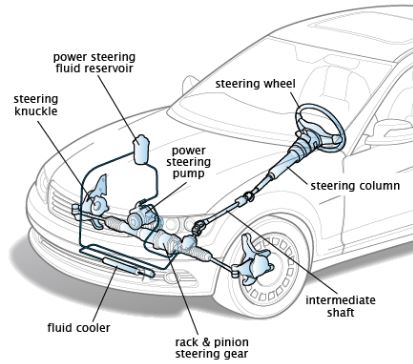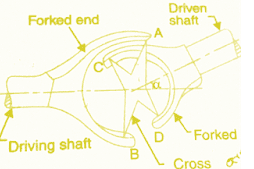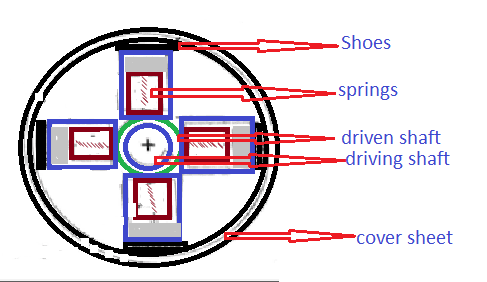Introduction:
The exhaust pipe is one of the most essential components of your engine. It’s a crucial part of your vehicle’s system that carries away fumes from the engine. This helps to keep the interior of your car free from harmful gases, and also ensures that emissions are released into the atmosphere in a responsible and safe manner. Let’s take a closer look at why this component is so important.
What is an Exhaust Pipe?
An exhaust pipe is a component of the exhaust system in a vehicle. It is a pipe that channels the exhaust gases from the engine to the rear of the vehicle, where they are then released into the atmosphere. The exhaust pipe is typically made of steel or stainless steel and is designed to withstand high temperatures and corrosive gases. The main function of the exhaust pipe is to reduce noise and pollution by dissipating the exhaust gases away from the vehicle and into the atmosphere. The exhaust pipe is an important component of the vehicle’s exhaust system, as it helps to reduce emissions and improve fuel efficiency.
What does an Exhaust Pipe do?
An exhaust pipe plays a major role in ensuring that your vehicle runs smoothly and efficiently. It works by removing fumes or gases that are produced by the combustion process within the engine, and then releasing them out into the atmosphere in a controlled manner. Without an exhaust pipe, these gases can stay trapped in the car, leading to poor air quality inside.
Another benefit of having an exhaust pipe is that it can help to reduce noise pollution caused by your vehicle. As these gases are expelled through the pipe, they pass through a series of chambers that work to reduce their volume before being released outside. This means there will be less noise coming from your car when you drive it, making it more bearable for both you and other drivers on the road.
The Importance of Regular Maintenance of Exhaust Pipe
Like any other part of your vehicle, regular maintenance is important for keeping your exhaust pipe working properly. This involves checking for signs of damage such as corrosion or cracking, as well as ensuring that all parts are securely fastened together with no loose connections. You should also make sure that all hoses and pipes attached to your exhaust system are not blocked or clogged up with debris or dirt.
By regularly inspecting and maintaining your exhaust pipe, you can ensure that it continues to run optimally while helping to protect both you and the environment from potentially harmful emissions.
What is the Exhaust Pipe called?
The exhaust pipe is a part of the exhaust system of a vehicle. It is a pipe that carries exhaust gases away from the engine and out of the vehicle. The exhaust pipe is also sometimes referred to as the tailpipe. It is typically made of metal and is connected to the exhaust manifold, which collects exhaust gases from the engine’s cylinders, and the muffler, which helps to reduce the noise of the exhaust gases as they exit the vehicle.
What are the symptoms of Exhaust Leak?
There are several symptoms of an exhaust leak:
- Loud engine noise: An exhaust leak can cause the engine to make a louder than normal noise, especially when accelerating.
- Decreased fuel efficiency: If there is a leak in the exhaust system, the engine will have to work harder to push exhaust gases out, which can decrease fuel efficiency.
- Poor engine performance: An exhaust leak can restrict the flow of exhaust gases, which can cause the engine to perform poorly or even stall.
- Increased emissions: An exhaust leak can cause an increase in the amount of harmful emissions released into the atmosphere.
- Vibrations: An exhaust leak can cause vibrations in the car, which can be felt through the floor or steering wheel.
- Strange smells: An exhaust leak can cause strange smells to come from the car, such as a sulfur-like smell or the smell of gasoline.
Which is better muffler or exhaust?
It is not accurate to say that one is necessarily better than the other, as both mufflers and exhaust pipes serve important functions in a car’s exhaust system. The muffler is responsible for reducing noise levels and improving the overall sound of the exhaust, while the exhaust pipe is responsible for directing exhaust gases away from the vehicle. Both are important for the proper functioning of a car, and choosing the best option for your vehicle will depend on your specific needs and preferences.
Can an exhaust leak harm you?
An exhaust leak can potentially be harmful to you if it allows carbon monoxide to enter the passenger compartment of your vehicle. Carbon monoxide is a colorless, odorless gas that is toxic to humans and can cause serious health problems, including death, if inhaled in high concentrations. If you suspect that you may have an exhaust leak, it is important to have it repaired as soon as possible to prevent potential exposure to carbon monoxide.
What are the 3 parts of exhaust?
The three main parts of an exhaust system are:
- The manifold: This is the part that connects the engine to the rest of the exhaust system. It is responsible for collecting the exhaust gases from the cylinders and directing them towards the rest of the system.
- The exhaust pipe: This is the long, tubular part of the exhaust system that carries the exhaust gases from the manifold to the muffler and tailpipe.
- The muffler and tailpipe: The muffler is a device that is designed to reduce the noise produced by the exhaust gases, while the tailpipe is the final part of the exhaust system, through which the exhaust gases are released into the atmosphere.
Do exhaust leaks affect engine?
Exhaust leaks can affect the performance of an engine in several ways:
- Reduced fuel efficiency: An exhaust leak can cause the engine to run lean, meaning that there is not enough fuel in the air/fuel mixture. This can lead to poor fuel efficiency and may cause the engine to run hotter than normal.
- Increased emissions: An exhaust leak can cause the engine to produce more emissions than normal, which is not only harmful to the environment but may also cause the vehicle to fail an emissions test.
- Reduced power: An exhaust leak can reduce the amount of backpressure in the exhaust system, which can lead to a reduction in power and torque.
- Engine noise: An exhaust leak can cause a loud or unusual noise to come from the exhaust system, which may be a sign of a problem.
Overall, it is important to have any exhaust leaks repaired as soon as possible to prevent further damage to the engine and to maintain the performance and efficiency of the vehicle.
How do you stop an Exhaust Leak?
There are a few ways to stop an exhaust leak:
- Repair the damaged part of the exhaust system. Depending on the location and severity of the leak, this may involve welding, replacing a section of pipe, or replacing a component such as a muffler or catalytic converter.
- Use exhaust sealant. Exhaust sealant is a temporary fix that can be sprayed into the exhaust system to plug small holes and cracks. It is not a permanent solution and will need to be reapplied periodically.
- Use an exhaust wrap. Exhaust wrap is a type of insulation that can be wrapped around the exhaust pipes to reduce the amount of heat that is lost through the exhaust system. This can help to reduce the risk of an exhaust leak, as well as reduce the amount of noise that is generated by the exhaust.
- Check and tighten all exhaust system connections. Make sure that all bolts, clamps, and hangers are tightened properly to reduce the risk of an exhaust leak.
It is important to note that the most effective way to fix an exhaust leak is to repair or replace the damaged part of the exhaust system. Using temporary fixes such as sealant or wrap may only provide a temporary solution and may not address the root cause of the leak.
What does exhaust smell like?
Exhaust from a car typically has a strong, unpleasant smell due to the gases and particles that are emitted as the fuel is burned. The smell may vary depending on the type of fuel being burned and any additives that are present in the fuel or exhaust system. The smell may also vary depending on the condition of the exhaust system and the engine, as problems such as leaks or clogs can contribute to the strength and type of the exhaust smell.
Conclusion:
In conclusion, an exhaust pipe is a vital component within any car engine system as it helps to remove dangerous fumes away from passengers while safely releasing them into the atmosphere in accordance with regulations. Regular maintenance should be done routinely to check for signs of damage or blockages which could compromise its efficiency over time. By taking good care of this component you can make sure it continues running smoothly for many years to come!
Tags: What is an Exhaust Pipe, what does What does Exhaust Pipe do, Regular Maintenance of Exhaust Pipe, What is the Exhaust Pipe called, symptoms of Exhaust Leak, Do exhaust leaks affect engine, How to stop Exhaust Leak, What does exhaust smell like, 3 parts of exhaust


